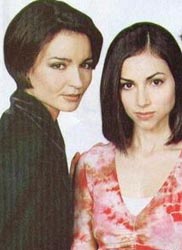
A lesbian is a homosexual woman or girl. The word is also used for women in relation to their sexual identity or sexual behavior, regardless of sexual orientation, or as an adjective to characterize or associate nouns with female homosexuality or same-sex attraction. The concept of "lesbian" to differentiate women with a shared sexual orientation evolved in the 20th century. Throughout history, women have not had the same freedom or independence as men to pursue homosexual relationships, but neither have they met the same harsh punishment as gay men in some societies. Instead, lesbian relationships have often been regarded as harmless, unless a participant attempts to assert privileges traditionally enjoyed by men. As a result, little in history was documented to give an accurate description of how female homosexuality was expressed. When early sexologists in the late 19th century began to categorize and describe homosexual behavior, hampered by a lack of knowledge about homosexuality or women's sexuality, they distinguished lesbians as women who did not adhere to female gender roles. They classified them as mentally ill—a designation which has been reversed since the late 20th century in the global scientific community.

Tara Maclay is a fictional character created for the action-horror/fantasy television series Buffy the Vampire Slayer (1997–2003). She was developed by Joss Whedon and portrayed by Amber Benson. Tara is a shy young woman with magical talents who falls in love with Willow Rosenberg, one of the core characters. Together, they help Buffy Summers, who has been given superhuman powers, to defeat evil forces in the fictional town of Sunnydale.
Heterosexism is a system of attitudes, bias, and discrimination in favor of heterosexuality and heterosexual relationships. According to Elizabeth Cramer, it can include the belief that all people are or should be heterosexual and that heterosexual relationships are the only norm and therefore superior.

Tribadism or tribbing, commonly known by its scissoring position, is a lesbian sexual practice involving vulva-to-vulva contact or rubbing the vulva against the partner's thigh, stomach, buttocks, arm, or other body parts, especially for stimulation of the clitoris. A variety of sex positions are practiced, including the missionary position.

"Lipstick lesbian" is slang for a lesbian who exhibits a great amount of feminine gender attributes, such as wearing make-up, dresses or skirts, and having other characteristics associated with feminine women. In popular usage, the term is also used to characterize the feminine gender expression of bisexual women, or the broader topic of female–female sexual activity among feminine women.
Heteroflexibility is a form of a sexual orientation or situational sexual behavior characterized by minimal homosexual activity in an otherwise primarily heterosexual orientation, which may or may not distinguish it from bisexuality. It has been characterized as "mostly straight". Although sometimes equated with bi-curiosity to describe a broad continuum of sexual orientation between heterosexuality and bisexuality, other authors distinguish heteroflexibility as lacking the "wish to experiment with ... sexuality" implied by the bi-curious label. The corresponding situation in which homosexual activity predominates has also been described, termed homoflexibility.

Lesbian erotica deals with depictions in the visual arts of lesbianism, which is the expression of female-on-female sexuality. Lesbianism has been a theme in erotic art since at least the time of ancient Rome, and many regard depictions of lesbianism to be erotic.
Lesbian bed death is the concept that lesbian couples in committed relationships have less sex than any other type of couple the longer the relationship lasts, and generally experience less sexual intimacy as a consequence. It may also be defined as a drop-off in sexual activity that occurs two years into a long-term lesbian relationship.

Maggie Stone is a fictional character from the American daytime drama All My Children. She was portrayed by actress Elizabeth Hendrickson, who also portrayed Maggie's identical twin sister Frankie Stone. The character came to Pine Valley in 2002 after Frankie's death, and befriended Bianca Montgomery whilst investigating her sister's murder. The series portrayed Bianca as having fallen in love with Maggie, with Maggie initially maintaining that she is only interested in men. The series featured her dating several men, taking a few of them to bed, sometimes out of confusion and other times out of a clear attempt to dispel her growing romantic attraction to Bianca. The two eventually become girlfriends, though heartbreak follows.
Nicole Conn is an American film director, novelist, producer, and screenwriter most famous for her debut feature, the lesbian love story Claire of the Moon (1992). Her screenplay for Claire of the Moon was also released as a novel the following year.

Bianca Montgomery and Maggie Stone are fictional characters and a supercouple from the American daytime drama All My Children. Bianca was portrayed by Eden Riegel, and Maggie was portrayed by Elizabeth Hendrickson.

Sexual activities involving women who have sex with women (WSW), regardless of their sexual orientation or sexual identity, can include oral sex, manual sex, or tribadism. Sex toys may be used.
Lesbian portrayal in media is generally in relation to feminism, love and sexual relationships, marriage and parenting. Some writers have stated that lesbians have often been depicted as exploitative and unjustified plot devices. Common representations of lesbians in the media include butch or femme lesbians and lesbian parents. "Butch" lesbian comes from the idea of a lesbian expressing themselves as masculine by dressing masculine, behaving masculinely, or liking things that are deemed masculine, while "femme" lesbian comes from the idea of a lesbian expressing themselves as feminine by dressing feminine, behaving femininely, or liking things that are deemed feminine.

Lena Kundera and Bianca Montgomery are fictional characters from the American daytime drama All My Children. Commonly referred to by the portmanteau "Lianca", they were the first lesbian couple on an American soap opera. Lena was portrayed by Olga Sosnovska, and Bianca was portrayed by Eden Riegel. Lena and Bianca's romance "quickly became a hit with viewers" and regularly surpassed older more established heterosexual couples for the number 1 spot on Internet and soap opera magazine readers' polls. The characters are the first to share a same-sex kiss in American soap opera history.

Bisexuality is a romantic or sexual attraction or behavior toward both males and females, to more than one gender, or to both people of the same gender and different genders. It may also be defined to include romantic or sexual attraction to people regardless of their sex or gender identity, which is also known as pansexuality.

Satsu is a fictional character created by Joss Whedon for Buffy the Vampire Slayer Season Eight, a comic book continuation of the television series Buffy the Vampire Slayer. Introduced as one of the strongest Slayers, she has a close relationship with her mentor Buffy Summers. Satsu develops romantic feelings for Buffy, and the two have a brief sexual relationship. She becomes the leader of her own Slayer squadron in Tokyo, and forms a friendship with fellow Slayer Kennedy during her performance review. She also makes a minor appearance in Buffy the Vampire Slayer Season Ten.

Compulsory heterosexuality, often shortened to comphet, is the theory that heterosexuality is assumed and enforced upon people by a patriarchal, allonormative, and heteronormative society. The term was popularized by Adrienne Rich in her 1980 essay titled "Compulsory Heterosexuality and Lesbian Existence". According to Rich, social science and literature perpetuate the societal belief that women in every culture are believed to have an innate preference for romantic and sexual relationships with men. She argues that women's sexuality towards men is not always natural but is societally ingrained and scripted into women. Comphet describes the belief that society is overwhelmingly heterosexual and delegitimizes queer identities. As a result, it perpetuates homophobia and legal inequity for the LGBTQ+ community.
Domestic violence within lesbian relationships is the pattern of violent and coercive behavior in a female same-sex relationship wherein a lesbian or other non-heterosexual woman seeks to control the thoughts, beliefs, or conduct of her female intimate partner. In the case of multiple forms of domestic partner abuse, it is also referred to as lesbian battering.

Yes, God, Yes is a 2019 American coming-of-age comedy-drama film written and directed by Karen Maine and starring Natalia Dyer. It is Maine's directorial debut, based on her 2017 short film of the same name, also starring Dyer.













